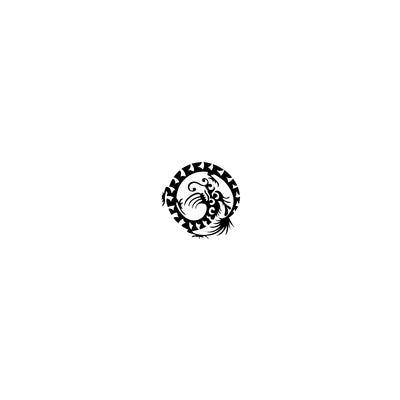-
EQUIPMENT
-
SHOP
-
EDUCATION
- FINANCING
by calvin jones June 26, 2023
The following is a brief description of cannabis processing certification requirements and how Bizzybee’s equipment is compliant with regulations. This information is for educational purposes only.
Certification requirements for a cannabis extraction processing facility in the United States of America are primarily defined by the International Fire Code (IFC) and the 38th Chapter of the National Fire Protection Association (NFPA). Within these codes other certifications may be specified, which may include: UL Listing (which applies to electrical equipment), C1D1 classification, and ASME boiler & pressure vessel codes (BPVC).
These regulations pertain to the environment and equipment that will be involved in operating a cannabis extraction facility. This includes specifications on extraction rooms, extraction systems, post-processing areas, electrical equipment, and aspects of the building itself, such as fire suppression systems. They do not include regulations associated with licensing or legality, as the basis for all these regulations is to ensure safety while working with or around flammable liquids and gasses.

The interpretation and enforcement of these regulations is decided by the Authority Having Jurisdiction (AHJ) of a given location. The role of AHJ can be filled by various groups or individuals such as a fire marshall, city engineer, or other regulatory authority. This role varies depending on location. Each state, county, and city/town may have a different AHJ. Each of these AHJs may have a different interpretation of the IFC and NFPA codes. Which leads to variation in certification requirements between different states and cities, even though they are all based on the same fire safety and pressure vessel codes.
The environment/infrastructure and operating equipment each have different certification requirements based on their exposure to flammable substances. Areas where flammable substances are being used and have a higher potential of exposure, like an extraction booth, must adhere to Class 1 Division 1 (C1D1) specifications. Areas that have small amounts of exposure to flammable substances, like a post-processing room, would adhere to Class 1 Division 2 (C1D2) specs. Areas without flammable substance exposure, like a packaging room, wouldn’t have these requirements.
Equipment is required to be rated for the environment it will be operating in. For example, equipment in a C1D1 space would have to be intrinsically safe and spark-proof. Extraction equipment must be rated for this C1D1 environment as well as adhere to fire safety and pressure vessel codes. Certifications for hydrocarbon extractors come in the form of an Engineer Peer Review (EPR) and a Certificate of Conformance (COC).

The EPR and COC documents for a hydrocarbon extractor must be created by a third party engineering firm with a professional engineering license in the state the extractor will be operating in. For this process, Bizzybee works with the third party engineering company 3P Certz.
3P Certz is a firm with professional engineering licenses in 49 states and are members of NFPA, ASME, ICC (International Code Council), and ASHRAE (American Society of Heating, Refrigerating and Air-Conditioning Engineers). They are one of the premier engineering firms working within the cannabis industry. Bizzybee and 3P Certz have worked closely together to ensure our closed loop hydrocarbon extractors adhere to all regulations by extensive testing with engineering software and real world hydrostatic failure tests. With this testing 3P Certz has created a full catalog review of every piece Bizzybee makes and uses in our extractors. This catalog is the Third Party Engineer Peer Review for Bizzybee closed loop extractors.
Each Bizzybee System is pressure tested, issued a serial number, photographed, and 3D renderings are generated. 3P Certz uses this information to write a Certificate of Conformance for that specific system at the specific location it will be operating at. These documents are given directly to the local AHJ as proof of record that the extractor adheres to all regulation requirements.

Bizzybee extractors are built to be rated for 150 PSI when operating using butane, isobutane, or a 70/30 butane/propane mix. Systems can be modified for a 250 PSI certified rating when pure propane is being used. We also have different columns rated for liquid CO₂ injection in the jacket or for a recirculating chiller connected to the jacket. All of our vessels larger than 6” diameter are made in an ASME manufacturing shop.
Our closed loop extractor’s modular design allows for easy system upgrades to expand production. Once a system is certified, installed and operational, any future upgrades/expansions to the system can be added to the current COC with a simple amendment.
Bizzybee has prepared for international regulations as legalization spreads to different countries around the world. International regulations can vary even more than domestic. One example is Canada, where there is a method of registering designs for pressure vessels and process piping called Canadian Registration Numbers (CRNs). We’ve worked with third party engineers to review our equipment designs for compliance with CRNs for certification in the various provinces of Canada.

Other considerations are certifications that Bizzybee’s client operators may need to be compliant to that Bizzybee doesn’t qualify for. An example of this is Good Manufacturing Practices (GMP) certification. GMP is a system of quality control standards for pharmaceutical products made for human consumption. A facility processing cannabis products may benefit from this certification. Bizzybee manufactures equipment and not pharmaceuticals, so we do not fall under the purview of GMP. However, once our equipment is installed in a GMP facility, that equipment must adhere to GMP regulations. Bizzybee continues to work with GMP consultants to review the operational guidelines of our equipment to meet the GMP requirements.
As a closed loop hydrocarbon extraction equipment manufacturer, Bizzybee’s main focuses are the quality of our products and the safety of our systems for operating personnel and facilities. Working closely with 3P Certz and other third party engineers allows us to maintain quality and safety compliance with all cannabis processing equipment regulations.
By Calvin Jones
by Bizzybee LLC May 16, 2023 3 Comments
by Bizzybee LLC January 16, 2022

calvin jones
Author